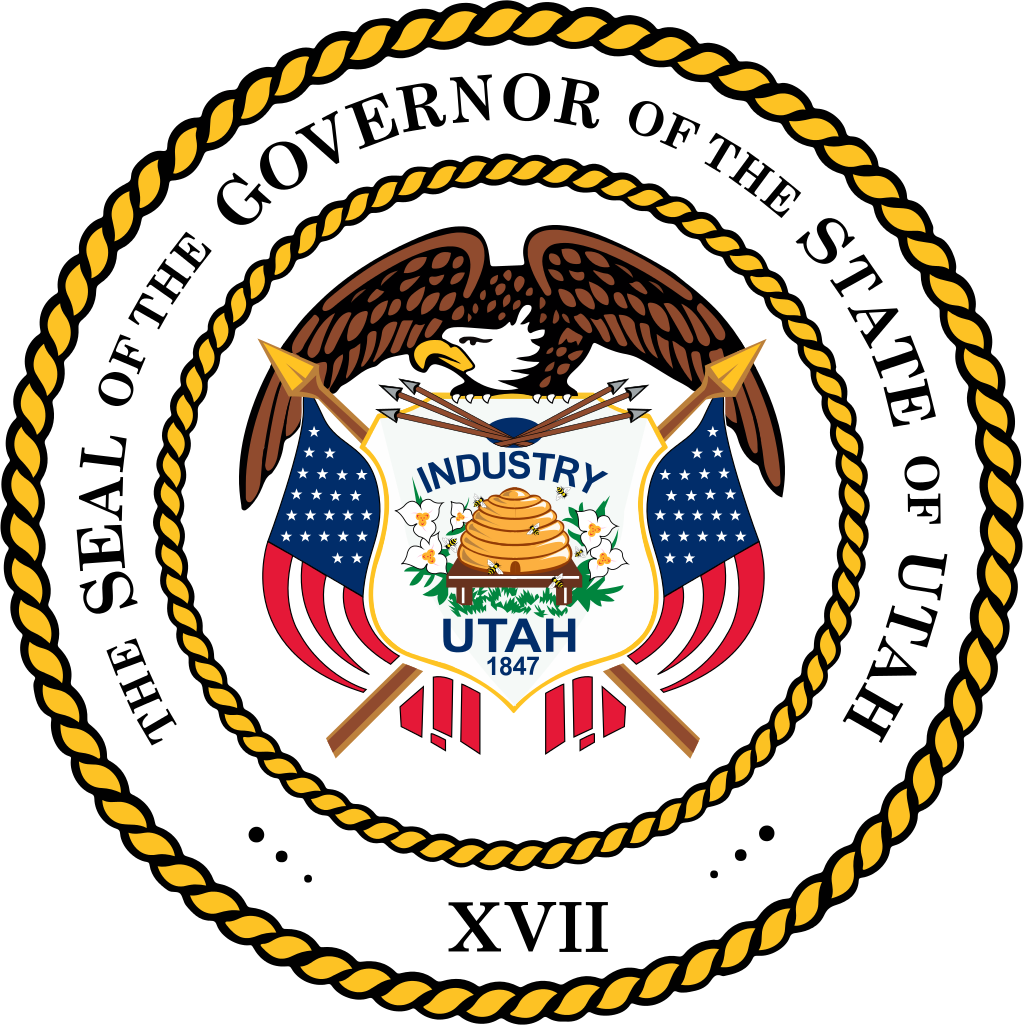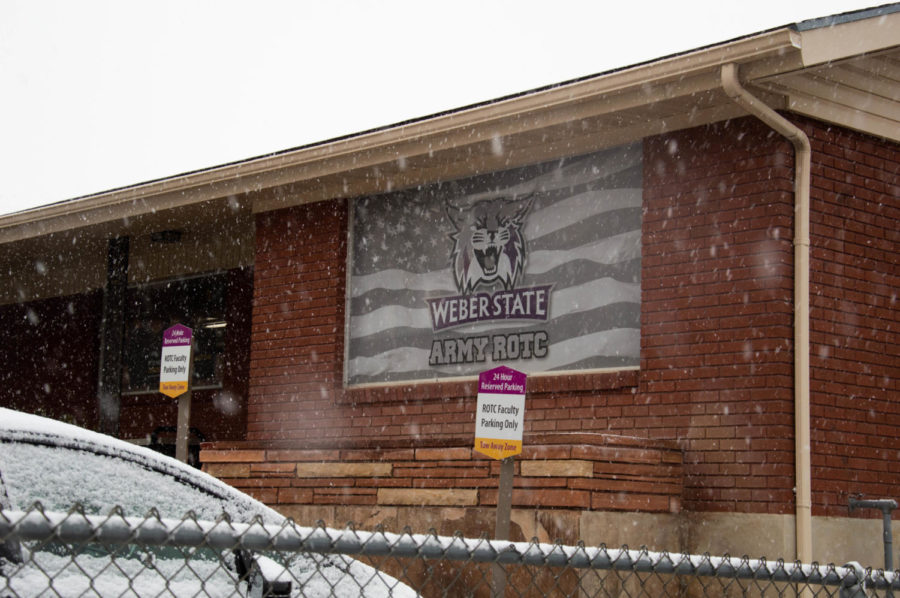With the state-wide election primaries drawing near, many are looking at their ballot and wondering who to vote for. With a record four gubernatorial primary candidates on the Republican ballot for the June 30 election and many other seats contested, the primaries are bound to be confusing for some.

To ease some of the confusion, below is an issue breakdown of the four Republican gubernatorial and lieutenant gubernatorial candidates and the Democratic gubernatorial and lieutenant gubernatorial candidates.
The four Republican running mates are Spencer Cox and Deidre Henderson, Thomas Wright and Rob Bishop, Greg Hughes and Victor Iverson and Jon Huntsman Jr. and Michelle Kaufusi, gubernatorial and lieutenant gubernatorial candidates respectively.
The democratic primary has been canceled in Utah, but Chris Peterson and Karina Brown have still been included in the issue breakdown.
Both the Huntsman and Cox campaigns did not respond for comment after multiple attempts to contact them for interviews about their platforms, so the information included below for their platforms can be found on their websites and on other sources that are included below.
COVID-19:
Cox and Henderson
The Cox and Henderson campaign plans to focus on the economy as Utah moves forward after the pandemic and rebuild Utah’s economy.
Cox released the Self-Reliant Utah plan mid-May, which will create state stockpiles of medical supplies, minerals and energy. This plan aims to keep Utah from relying on other governments for essential products in the event of any catastrophe.
Additionally, the Self-Reliant Utah proposition would encourage telework, telehealth and more online education options. According to Cox’s opinion piece in the Deseret News, his administration would aim to become the most “technologically innovative education” state.
Self-Reliant Utah would also focus on the food and water infrastructure in the state and create projects and policies to support those areas and the development to process agricultural goods.
Wright and Bishop
The Wright and Bishop campaign would focus on the economic ramifications of the COVID-19 pandemic and work toward the reopening of businesses.
“The best thing you can do to support businesses is to deregulate the economy and make sure that the taxes are as competitive as possible,” Wright said. “If the government will get out of the way and let them do their thing, they will, and Utah will have tremendous economic prosperity.”
Wright and Bishop also focused on providing the information to people and then letting them act on it, instead of closing the state or any businesses by executive order.
“It’s important that there has to be a government understanding that what we have done so far is a process that was done by executive order and that is a dangerous precedent for the future that has to be addressed,” Bishop said. “Next time there is some kind of crisis, there will be a way of having more people involved in the decision making process.”
Hughes and Iverson
The Hughes and Iverson ballot is focused on reopening the economy. They are proponents of the stance that the mandatory closures in Utah have been in violation of Constitutional Rights.
“I think our constitutionally-protected liberties were often taken from us during this time of COVID-19,” Hughes said. “The challenge is when you have your government start to define what essential business is versus what is not an essential business, you get into some treacherous waters.”
Hughes also said that if you ask a business owner or household who is lacking income because of their forced business closure, they would define their business or work as essential.
The health policies of the Hughes administration, if elected, would continue to encourage quarantine for high risk populations and social distancing for everyone.
Huntsman and Kaufusi
Huntsman plans to utilize federal and state grant programs available to Utahns and their businesses to help alleviate issues. He also plans to encourage financial institutions to provide bridge zero-interest loans and payroll tax incentives.
During the pandemic, Huntsman would also encourage reopening safely and successfully, while also suspending regulations to take government out of business and stimulate existing supply chains.
Huntsman would also accelerate training for Utah workers to develop the work force quickly.
Peterson and Brown
In the face of the pandemic, Peterson and Brown plan to help educate the public and businesses of funding opportunities in federal and state governments.
“It’s important to support businesses and make them aware of federal funding opportunities that are available to them through paycheck protection alone,” Brown said. “It’s important to support workers and the tough jobs they have.”
Peterson and Brown plan to focus on providing protection to workers and businesses as much as possible while still moving forward safely during the unpredictable pandemic.
Brown also spoke about the Pandemic-EBT, a program designed to help K-12 students by placing the value of school meals on cards for families to use in grocery stores, and Utah rejecting the $50 million that would have gone to students to help provide food.
Public Lands:
Cox and Henderson
Cox plans to address and re-examine policy regarding public lands, especially the lands the federal government has controlled to ensure lands with state interests are proportionately compensated.
“Unfortunately, today’s D.C.-based, top-down management approach fails to adequately reflect the views and input of the people who actually live here,” votecox.com said.
Wright and Bishop
Wright believes that public lands need to be tackled one issue at a time, in issues that everyone can agree on. He wants to start by reclaiming all federal lands that are within Utah’s cities that could be used more effectively.
Then, he would like to move to have all land transferred to state control that is one mile outside of cities.
“Leaders need to find common ground,” Wright said. “Find a way to solve the problem in a compelling way.”
Hughes and Iverson
Hughes wants to plan and get the public lands that the federal government controls back into the state government’s hands. He also talks about Payment in lieu of Taxes, which is a federal program where the federal government pays a fee each year to the state for the land they own.
“The joke is that it’s pennies in lieu of trillions,” Hughes said. “The government acknowledges that the state is owed something for land. The federal government has never even begun to send the appropriate money to our state that reflect the value of that land.”
Huntsman and Kaufusi
The majority of Utah is controlled in some form of public lands. Huntsman plans to change policy to make sure that the desires of Utahns are happy with how the federal and state public lands are controlled.
Huntsman also plans to increase funding for PILT and use the funding for schools and education. He also plans to work with federal agencies to grow cities and use public lands to grow communities, according to huntsman2020.com.
Peterson and Brown
Peterson and Brown support the current state of public lands in Utah; however, they say PILT is not paying enough for the land they control when they are such a big part of Utah’s tourism industry.
“Utah’s tourism industry is very lucrative,” Brown said. “People from all over the world come here to enjoy public lands.”
Second Amendment:
Cox and Henderson
Cox said on his website that the second amendment must be protected and recognized, so the public can “keep and bear arms for self-defense.”
Citing the Utah Constitution, Cox said that it is foundation of these rights and that it is the right of the people to have guns for “security and defense of self, family or the state.”
Wright and Bishop
Wright and Bishop believe that the Second Amendment was created to ensure citizens could protect themselves from the government.
“We don’t want the government to infringe on that right because our founding fathers’ fought for our ability to have these civil liberties and freedoms,” Wright said.
Wright also said that safety and gun rights are not mutually exclusive, but that individual rights can be maintained while discussing ways to make guns safer for the public.
Hughes and Iverson
Hughes is a proponent of no waiting periods, background checks, registration or state licensing. He also voted for the constitutional carry bill in the Utah Legislature.
Hughes also opposes any “Red Flag” law for cutting out due process and not being constitutional.
Huntsman and Kaufusi
Huntsman doesn’t want new legislation regarding “the sale, use or possession of firearms.” The campaign believes that the current laws are appropriate and that there should be no further restrictive legislation.
According to his NRA survey, Huntsman opposes state licensing, registration, waiting periods and background checks.
Peterson and Brown
In regards to gun safety, Peterson and Brown support the promotion of safe gun storage, universal background checks, waiting periods and a ban on bump stocks and military assault weapons.
“85% of firearm deaths in Utah are suicides, which is tragic,” Brown said. “I support the extreme protective order bill. A family member can report to a judge if they’re concerned about a member of their family, for domestic violence or mental health issues while having a weapon, and the judge can order the removal of the firearm for up to a year.”
Mental Health:
Cox and Henderson
The Cox and Henderson campaign do not have a policy position listed for mental health on their website or any prominent position outside of it.
Wright and Bishop
Suicide is at an all-time high in Utah and has become a leading cause of death in ages from 10-25. Wright wants to create more positive intervention in schools where suicide can hopefully be prevented. These programs can help parents and teachers understand the warning signs of mental illnesses.
Wright also supports more mental health care, funding to provide it and early intervention programs. He also believes supporting teachers in this effort will help reduce suicides.
Hughes and Iverson
Hughes has supported making telehealth a more feasible option for mental health outreach. He does not support mandates on insurance for coverage.
Huntsman and Kaufusi
Huntsman plans to engage major stakeholders to bring the issue of suicide and the mental health crises into public arenas to discuss best practice.
“As a state, it is time to make sure those who suffer know they are not in this alone and that we are eager to help them get the care they need,” huntsman2020.com said.
Peterson and Brown
Peterson and Brown support an increase in mental health funding. This would include broadening the mental health hotline and increased funding to psychiatric residencies to help get more psychiatrists through the program and help those who need it.
“Often times there’s a waiting list for different counselors in different communities, and then it’s too late,” Brown said.
Education:
Cox and Henderson
“Federal involvement in education should be minimized to the greatest extent possible. That way teachers can get back to doing what they do best—teaching,” votecox.com said.
The position of Cox and Henderson is that federal guidelines need to be taken out of schools and that local and state governments should be accountable for the outcomes in education.
Wright and Bishop
Wright and Bishop plan to increase teacher pay to help attract new teachers and keep teachers from having to pick up a second job to support a family.
Wright also supports getting the government out of the way and stopping much of the standardized testing that is mandated through the state.
Hughes and Iverson
Hughes plans to increase funding for schools without using federal funds because of the regulations that come with it.
In addition, Hughes wants to expand parental choice in schools about how their children are being taught and where they are being taught. He believes that expanding charter schools will allow them to choose how their children are being taught.
Huntsman and Kaufusi
Huntsman plans to keep the decision-making process for education to a local government level. He plans to take the federal government out of education and keep them making any decisions for Utah schools.
His website also expresses that the state needs to demand high-quality education while trusting school boards.
He also believes that COVID-19 has proven that K-12 can be flexible for students and has shown the potential for hybrid learning environments.
Peterson and Brown
Peterson and Brown plan to establish a fund to guarantee that Utah’s education system would be fortified and make education more accessible.
“It was recently reported that Utah is 51 in the country for per-pupil funding, and increasing per-pupil funding is important,” Brown said. “Increasing teacher pay is important. Putting a priority on those two things is important because education is one of the best investments we can make.”
Air Quality:
Cox and Henderson
During a gubernatorial debate, Cox stated that he has had a considerable amount of time to work on his initiatives, such as promoting telecommuting and promoting Tier 3 fuel and electric vehicles.
He also said that he would focus on finding solutions for air quality issues, which are intersected with issues ranging from health to education.
Wright and Bishop
Wright supports the increased focus on vehicle emission standards and creating opportunities for the vehicle emissions to slow. However, Wright is also a proponent of building energy-efficient and low-emission appliances to reduce the output of pollutants for homes and businesses.
“The state has done a better job than the EPA, as far as coming up with criteria,” Bishop said. “Some initiatives would deal with the ability of using people and letting them realize that the amount of carbon dioxide that goes into the air just based on how they use their cars.”
Hughes and Iverson
For Hughes, addressing air quality means focusing on the entire state of Utah, since the air quality “dovetails” into each other.
“We live in a valley, so inversions are natural to talk about,” Hughes said. “We can’t just keep trying to shoehorn all the population growth into this 130 mile valley. That’s what’s making it harder.”
Huntsman and Kaufusi
Huntsman wants to take a local approach to the air quality problems in Utah, as the Wasatch Front and Cache Valley are the most heavily impacted by the inversion.
Huntsman also supports moving to Tier 3 gasoline and moving state employees to a four-day work week to reduce emissions.
UTA will also be changing the front-runner from Tier 1 to Tier 5 engines and eventually to electric engines.
Peterson and Brown
Leaning on the experience of the past few months, Peterson and Brown feel that teleworking could be one solution to help air quality in the Wasatch Front.
Additionally, a tax incentive would be a potential policy to accelerate electric vehicle use.
Peterson also supports modifying building codes at the state level to require energy efficient new construction.



















